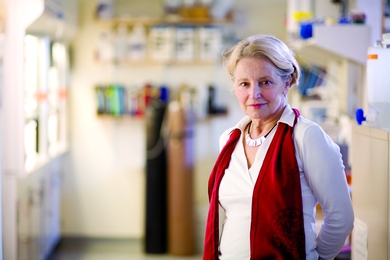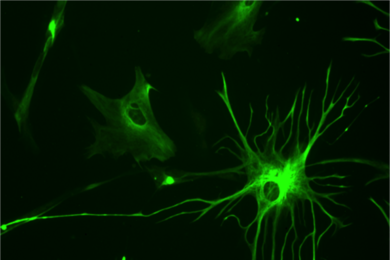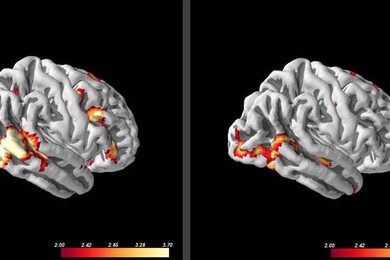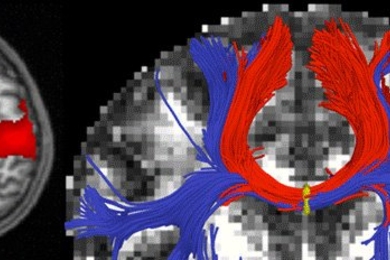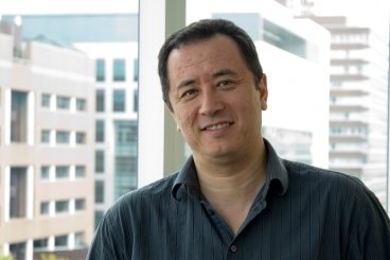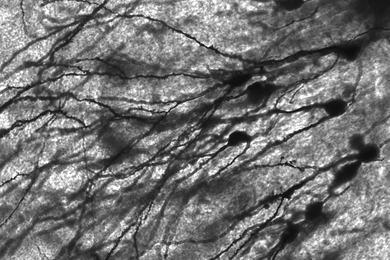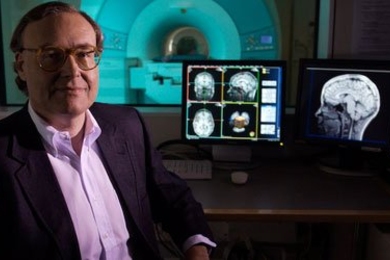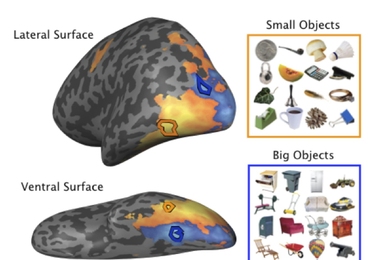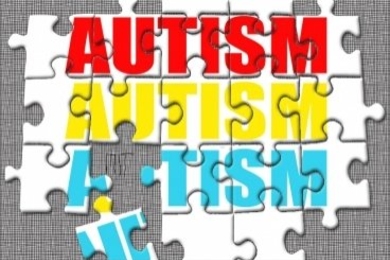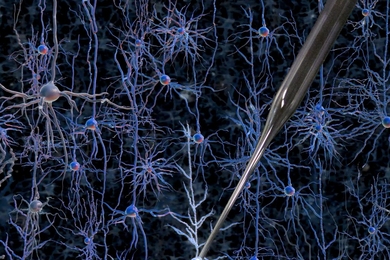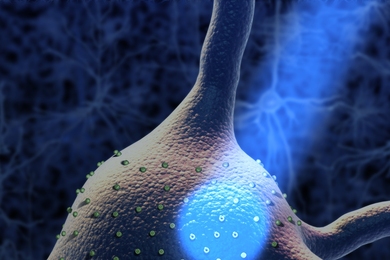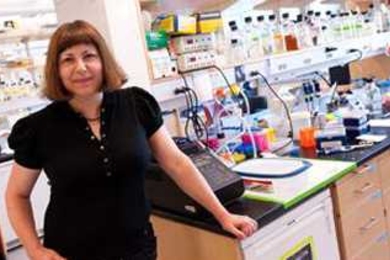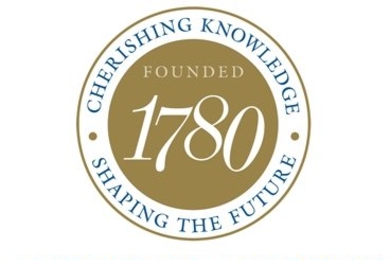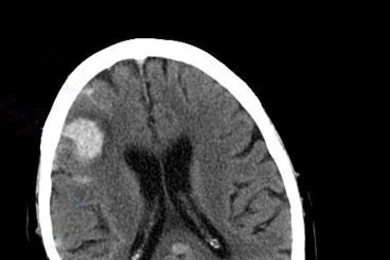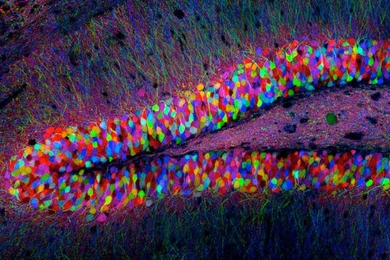How attention helps you remember
New study finds long-overlooked cells help the brain respond to visual stimuli.
Predicting how patients respond to therapy
Brain scans could help doctors choose treatments for people with social anxiety disorder.
Mapping neurological disease
New algorithm can analyze information from medical images to identify diseased areas of the brain and connections with other regions.
Simple mathematical computations underlie brain circuits
Discovery of how some neurons inhibit others could shed light on autism, other neurological disorders.
Introduction to Psychology now available in MIT OpenCourseWare’s innovative OCW Scholar format
Course is the sixth of seven courses MIT OCW will publish this year specifically to meet the needs of independent learners.
All things big and small: the brain’s discerning taste for size
New research shows brain has distinct regions for identifying different sized objects.
Robots that reveal the inner workings of brain cells
New method offers automated way to record electrical activity inside neurons in the living brain.
Institute faculty share prestigious neuroscience prize
Ed Boyden and Feng Zhang awarded the Perl/UNC Neuroscience Prize
Sensing when the brain is under pressure
New monitoring strategy forgoes surgery, could help doctors treat patients with head injuries.
Researchers show that memories reside in specific brain cells
Simply activating a tiny number of neurons can conjure an entire memory.
